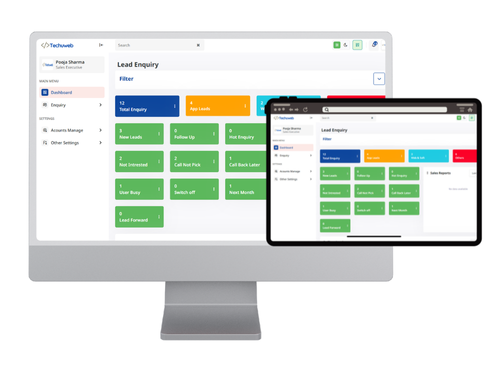Features of Lead CRM Solution
Marketing Automation : This is the process of using software to automate marketing tasks including ad management, social media posting and email campaigns. By sending tailored messages according to behavior, funnel stage or engagement level a CRM aids in the nurturing of leads.
Lead Scheduling : You may schedule meetings, phone calls or demos with leads right within the CRM by using lead scheduling. It can provide time slots for the lead to select from and typically interfaces with calendar tools. This prevents missed opportunities and guarantees prompt follow-up.
Lead Management : This is the procedure for monitoring and controlling leads or prospective clients, from the time they join your system until they convert or leave. Leads are scored assigned to sales representatives and then progressed through the sales funnel.
Lead Analytics : Lead analytics gives you information about your leads, including their origins, their interactions with your marketing campaigns, conversion rates and more. This aids in campaign optimization and helps you identify what is effective.
Real-Time Notifications and Reminders :When a lead completes a crucial activity such as reading an email, going to a price page or requesting a demo, these are real-time notifications sent to the sales or marketing teams. Furthermore, reminders help ensure that tasks and follow-ups are not missed.
Automated Lead Capture : This tool automatically gathers lead data from various sources, including chatbots, social media platforms, landing pages and websites and enters it straight into the CRM system. It guarantees that no potential client is missed, expedites the lead entry process and lowers the possibility of human error.
 ENG
ENG
 简体中文
简体中文
 العربيّة
العربيّة




























